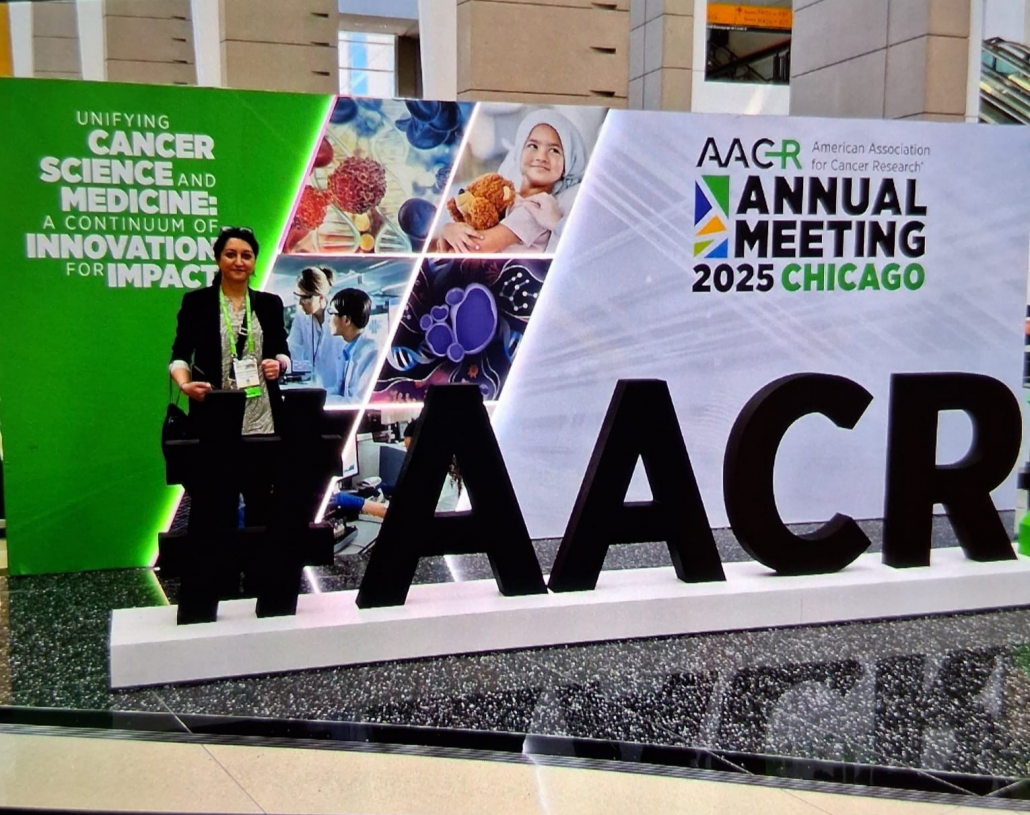
We are proud to share that Dr. Niavarani (Postdoctoral Fellow) presented her research at the American Association for Cancer Research (AACR) Annual Meeting 2025, held in Chicago, Illinois. This premier global event convenes leading cancer researchers, clinicians, and advocates to share the latest discoveries across the spectrum of cancer science. The meeting was chaired by Dr. Lillian L. Siu (Princess Margaret Cancer Centre) and Dr. Matthew G. Vander Heiden (MIT Koch Institute), under the theme “Unifying Cancer Science and Medicine: A Continuum of Innovation for Impact.”
Her poster, titled:
Deciphering the mechanisms underlying the pathophysiology and chemotherapy resistance in acute myeloid leukemia using intravital imaging and humanized NSGW41IL7 mouse
focused on uncovering mechanisms of therapeutic resistance in acute myeloid leukemia (AML), a highly aggressive and heterogeneous malignancy. AML alters the bone marrow microenvironment, promoting immune suppression and hypoxia—key contributors to treatment failure and relapse.
To address this challenge, the study employed two innovative tools:
- A humanized NSGW41IL7 mouse model engrafted with human AML cells.
- The femur window chamber (FWC) technique, enabling real-time intravital imaging of AML dynamics within the bone marrow.
Using fluorescent markers, the team visualized continuous interactions between AML cells and immune components, including human gamma delta T cells, under hypoxic conditions. The platform also allowed assessment of chemotherapy effects on AML cell survival and immune responses over time.
This meeting also provided an excellent opportunity for Dr. Niavarani to engage with leading cancer scientists from around the world, learn about cutting-edge research, and share the discoveries emerging from our lab. The experience fostered valuable scientific exchange and professional networking, reinforcing our commitment to collaborative and translational cancer research.
